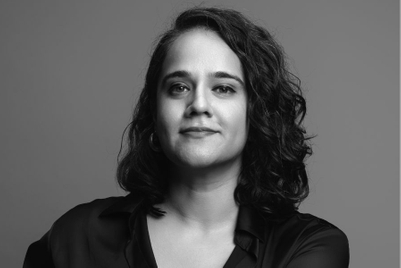.png&h=570&w=855&q=100&v=20250320&c=1)
The major agency-holding groups have all now reported their Q1 results. There was not really much in the numbers that changed the overall pattern we have seen for multiple quarters now: Publicis continues to outperform expectations, which is helped by the strength of both its Media and Epsilon offerings in particular. Omnicom is doing relatively well, as is Havas, although at slower growth rates. For WPP, IPG and Dentsu, the picture is more subdued, although they remain committed to their FY targets, which imply (some) growth, if not a considerable amount. However, in Asia-Pacific, what picture do the results paint?
The same mixed picture we saw at the overall agency group level was repeated in the region, but there were more extreme ranges in the groups' performances.
Publicis again led the pack with organic revenue growth of up to 6.2% in the APAC region, which was helped by double-digit growth in the media business and high single-digit growth in Sapient. Omnicom reported 3% growth for APAC, and while their definition of organic revenue growth (unlike others) does not strip out pass-through costs, that figure was probably comparable to what was reported by others. For the other groups, the picture was brutal—WPP was down 3.2%, dragged down by a 15.4% decline in China; Dentsu came in at -7.1% (which it stated was ahead of internal expectations), while Interpublic Group (IPG) saw the sharpest fall with an 8.1% drop.
This mixed picture was also repeated at the country level.
Take China, for example. Publicis saw good growth in China, as flagged above, due to the strength of its media performance, while WPP was impacted by client losses and what it termed a challenging macro and client environment. Dentsu reported improving momentum in the country, although the overall Asia-Pacific numbers suggest that China was still negative. Omnicom made little reference to China on their call, as did Interpublic, but, like Dentsu, their numbers indicate a negative performance. The overall picture we can glean from this is significant market share gains and losses for some players, particularly WPP, impacted by its specific issues in the country.
For WPP, which is probably the most significant player in the country, China is complicated. The company referenced both the challenging macro environment and impacts on client spending, and it would be reasonable to assume that the management changes in 2023 have had an effect. On its conference call, WPP stated it expected Q2 trends to be similar to Q1 despite a much easier comparable (Q2 2023 was down 8.7% vs Q1 2023, which was up 0.6%) and to be down for the entire year overall, even if H2 improves, it faces significant challenges.
India, on the other hand, looks to be a bright spot for all the groups.
WPP showed 6.6% organic growth in Q1 in the country, which was helped by media and FMCG clients. Publicis and Omnicom made a few comments, but their numbers again suggested that the country's growth was solid. On IPG's conference call, organic revenue growth in India was highlighted as the exception to a poor overall performance in the region. The exception was Dentsu, which continues to be impacted by account losses sustained in 2023, although it pointed to improved momentum.
By the type of agency business, it is clear that media continues to be the overall growth driver, as it does worldwide. However, the level of account losses will impact each agency and its wins. That points to the continued importance of what is (probably) a high-margin business for the agency groups. However, Publicis' comments on Sapient also suggest technology's growing role in the agencies' business, a trend that is likely to continue.
Overall, the agencies' performance is similar to that of the rest of their global businesses, although the difference in performance is more striking. The comments from the groups on the call suggest the gap will narrow as the year progresses, and that is likely, although that narrowing is likely to be H2 weighted. However, some groups have more than others to stabilise their regional performance.
As usual, this is not investment advice.
Ian Whittaker is the founder and managing director of Liberty Sky Advisors. He writes regularly for Campaign about the advertising landscape from a financial standpoint.


.jpg&h=334&w=500&q=100&v=20250320&c=1)

.jpg&h=334&w=500&q=100&v=20250320&c=1)
+(1).jpg&h=334&w=500&q=100&v=20250320&c=1)

.jpg&h=334&w=500&q=100&v=20250320&c=1)



.jpg&h=334&w=500&q=100&v=20250320&c=1)

.jpg&h=268&w=401&q=100&v=20250320&c=1)


.jpg&h=268&w=401&q=100&v=20250320&c=1)


